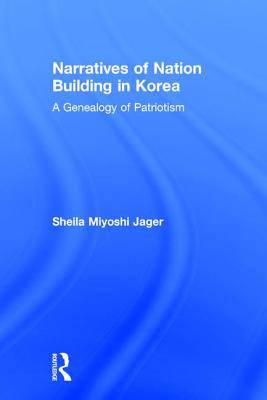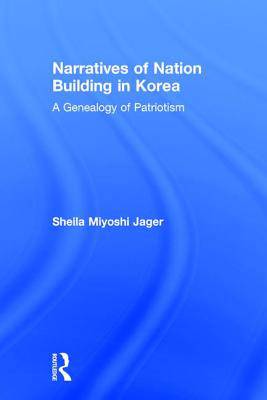
Door een staking bij bpost kan je online bestelling op dit moment iets langer onderweg zijn dan voorzien. Dringend iets nodig? Onze winkels ontvangen jou met open armen!
- Afhalen na 1 uur in een winkel met voorraad
- Gratis thuislevering in België vanaf € 30
- Ruim aanbod met 7 miljoen producten
Door een staking bij bpost kan je online bestelling op dit moment iets langer onderweg zijn dan voorzien. Dringend iets nodig? Onze winkels ontvangen jou met open armen!
- Afhalen na 1 uur in een winkel met voorraad
- Gratis thuislevering in België vanaf € 30
- Ruim aanbod met 7 miljoen producten
Zoeken
Narratives of Nation-Building in Korea
A Genealogy of Patriotism
Sheila Miyoshi Jager
Hardcover | Engels
€ 182,45
+ 364 punten
Omschrijving
This book offers new insight on how key historical texts and events in Korea's history have contributed to the formation of the nation's collective consciousness. The work is woven around the unifying premise that particular narrative texts/events that extend back to the premodern period have remained important, albeit transformed, over the modern period and into the contemporary period. The author explores the relationship between gender and nationalism by showing how key narrative topics, such as tales of virtuous womanhood, have been employed, transformed, and re-deployed to make sense of particular national events. Connecting these narratives and historic events to contemporary Korean society, Jager reveals how these "sites" - or reference points - were also successfully re-deployed in the context of the division of Korea and the construction of Korea's modern consciousness.
Specificaties
Betrokkenen
- Auteur(s):
- Uitgeverij:
Inhoud
- Aantal bladzijden:
- 212
- Taal:
- Engels
Eigenschappen
- Productcode (EAN):
- 9780765610676
- Verschijningsdatum:
- 31/01/2003
- Uitvoering:
- Hardcover
- Formaat:
- Genaaid
- Afmetingen:
- 162 mm x 233 mm
- Gewicht:
- 449 g

Alleen bij Standaard Boekhandel
+ 364 punten op je klantenkaart van Standaard Boekhandel
Beoordelingen
We publiceren alleen reviews die voldoen aan de voorwaarden voor reviews. Bekijk onze voorwaarden voor reviews.











